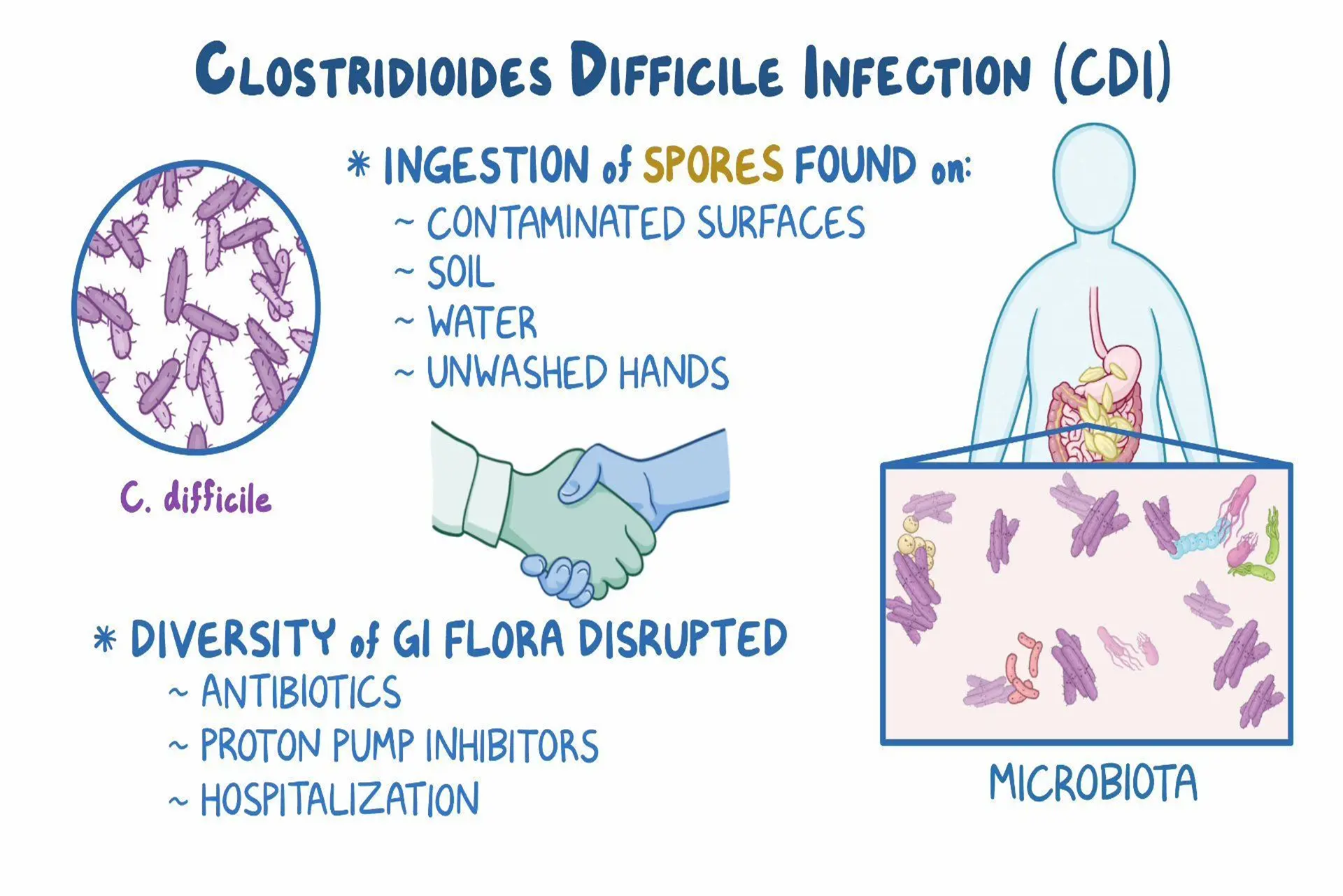
Overview:
Acute Clostridium difficile colitis is a bacterial infection of the colon caused by Clostridium difficile (C. diff). It leads to inflammation of the colon, resulting in severe diarrhea and potentially life-threatening complications if untreated. It commonly occurs after prolonged antibiotic use, which disrupts the normal gut flora.
Causes:
The primary cause of C. difficile colitis is an overgrowth of C. difficile bacteria in the intestines, usually triggered by antibiotic use. Other risk factors include hospitalization, weakened immune systems, and prolonged stays in healthcare facilities.
Symptoms:
Common symptoms include watery diarrhea, abdominal pain, fever, nausea, loss of appetite, and dehydration. Severe cases may result in toxic megacolon, sepsis, and organ failure.
Treatment:
Treatment includes stopping the triggering antibiotic, administering specific antibiotics such as vancomycin or fidaxomicin, and ensuring adequate hydration. Severe cases may require hospitalization, fecal microbiota transplantation (FMT), or surgery in extreme cases.
Precautions:
Proper hand hygiene, avoiding unnecessary antibiotic use, and maintaining a healthy gut flora with probiotics can help reduce the risk of infection.
Prevention:
Hospitalized patients should follow strict infection control measures, and healthcare facilities must ensure proper sanitation.
For expert C. difficile colitis treatment, visit The KDM Hospital in Lucknow, offering ambulance services, budget-friendly care, Ayushman card acceptance, and 24/7 doctor availability.
